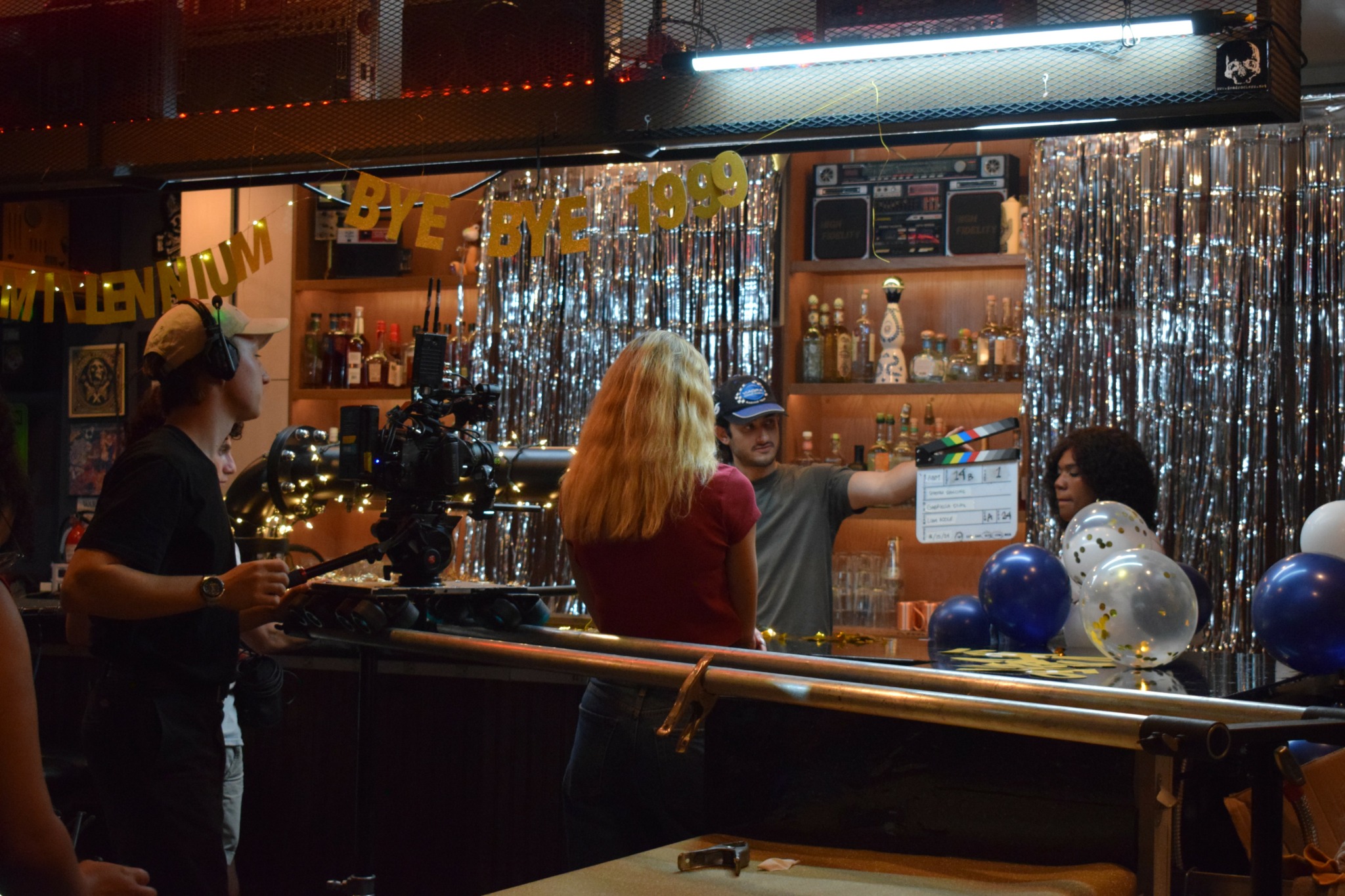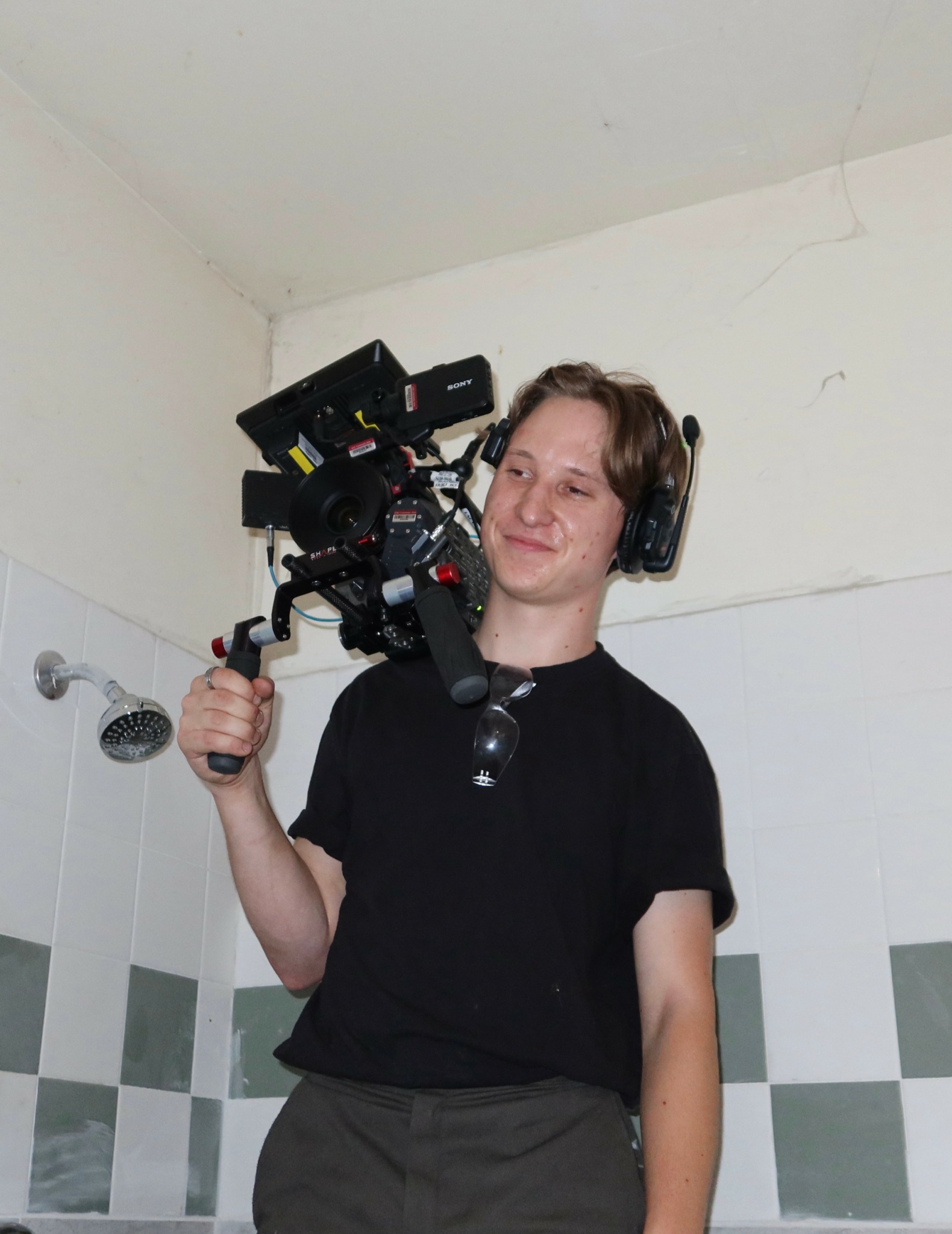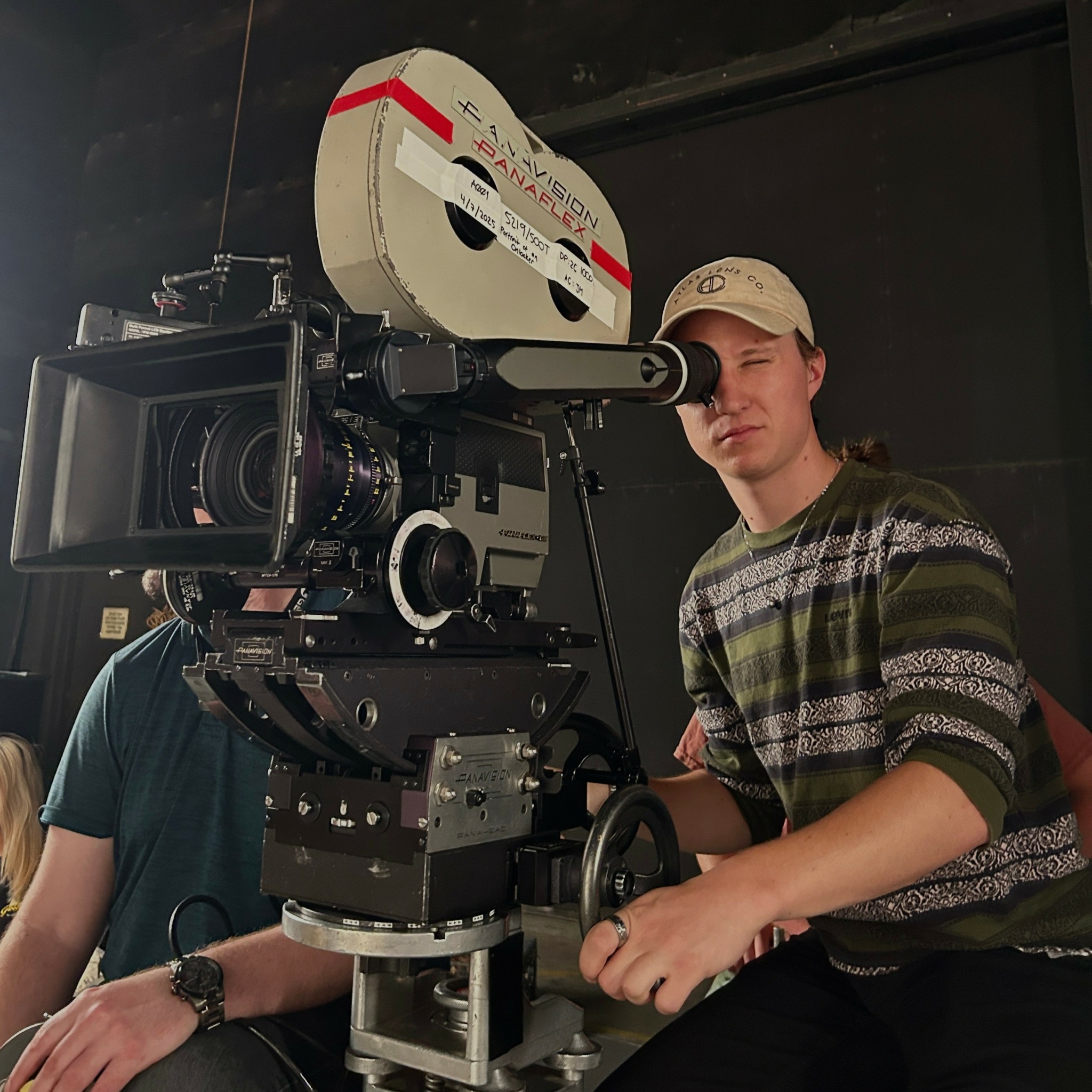We’re excited to introduce you to the always interesting and insightful Liam Hoole. We hope you’ll enjoy our conversation with Liam below.
Liam, thanks for taking the time to share your stories with us today We’d love to hear about how you got your first non-friend, non-family client. Paint the picture for us so we can feel the same excitement you felt on that day.
How I got my first client isn’t particularly interesting but the story of how the shoot itself went is somewhat funny. That was a day of many lessons learned and mistakes I try not to repeat. I think it’s healthy to think about the bad shoots as a reminder that I have in fact improved significantly over the years. During my sophomore year of high school my two buddies and I started a “production company.” I use that phrase lightly as it was in no way a legitimate business. Regardless, this first job was for a local Lacrosse team that wanted some promotional material for their website and they paid us $400 which we were over the moon about. We started the day off getting pulled over by the police on our way to the lacrosse field. This turned out to be a significant problem, not just because we were already running late, but because the person driving had a provisional license (we were 15) and I was being driven illegally. On top of that he had forgotten his drivers license. After arriving horrendously late we began shooting left and right. Broll, interviews, the occasional drone shot, the works. Then, halfway through the day, we decided to compare the settings of our 2 main cameras and realized they were in no shape or form remotely similar which rendered half the footage useless. We hurried to make up for the lack of footage in the blistering summer heat, running out of battery and memory card space as we went. When we finally sent them the video their response went something like: “Thanks! can we get more of the drone footage?” When we looked back at the original email they had sent they had mentioned almost exclusively wanting drone footage (this was 2017 and drone footage was all the rage). Not only were we rash, underprepared, and late, but we missed the point of the project. The client was ultimately happy but we ended up creating tons more work and stress for ourselves which I think is one of the most valuble lessons a filmmaker can learn. I’ve moved more into narrative now but I think those lessons still heavily apply.
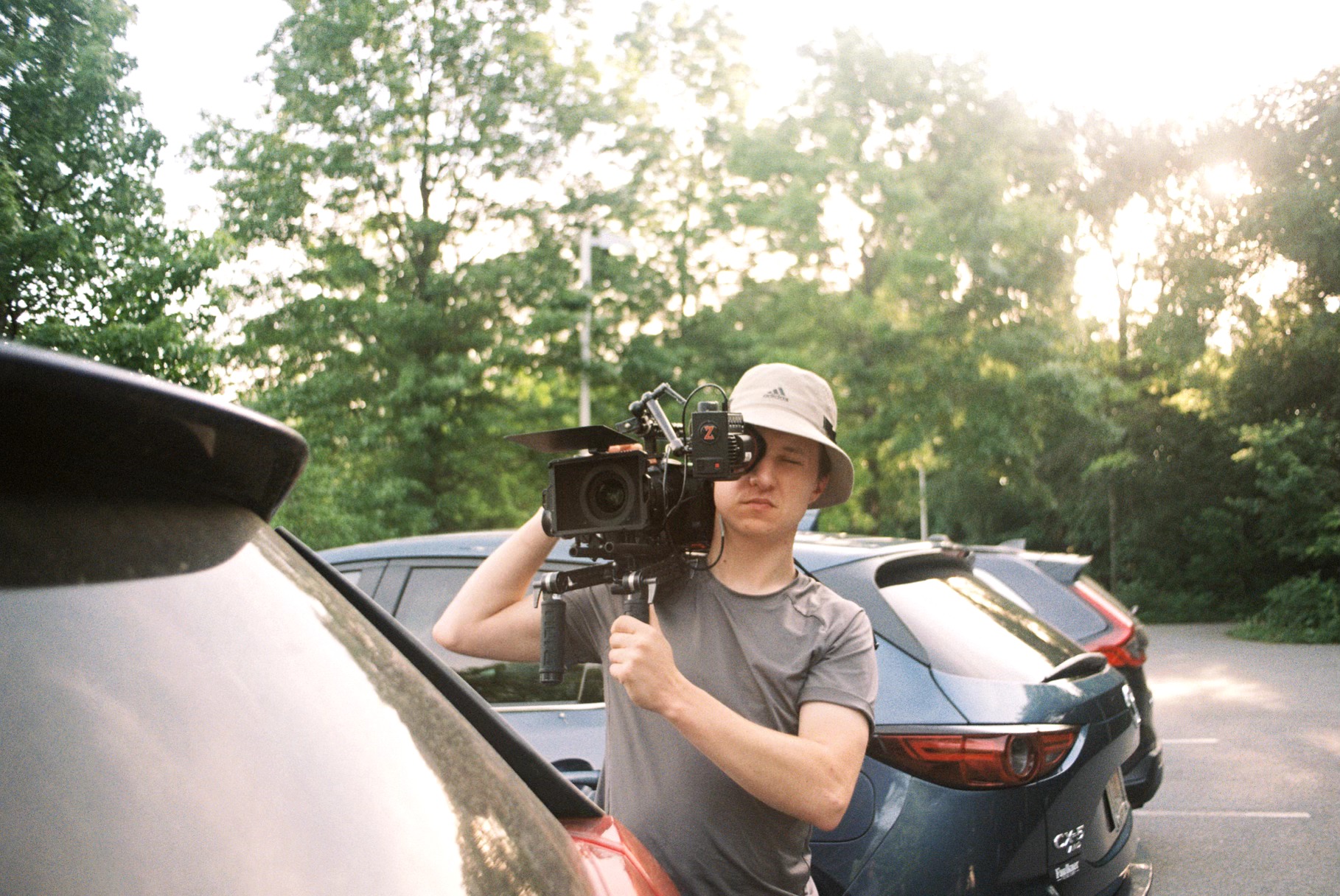
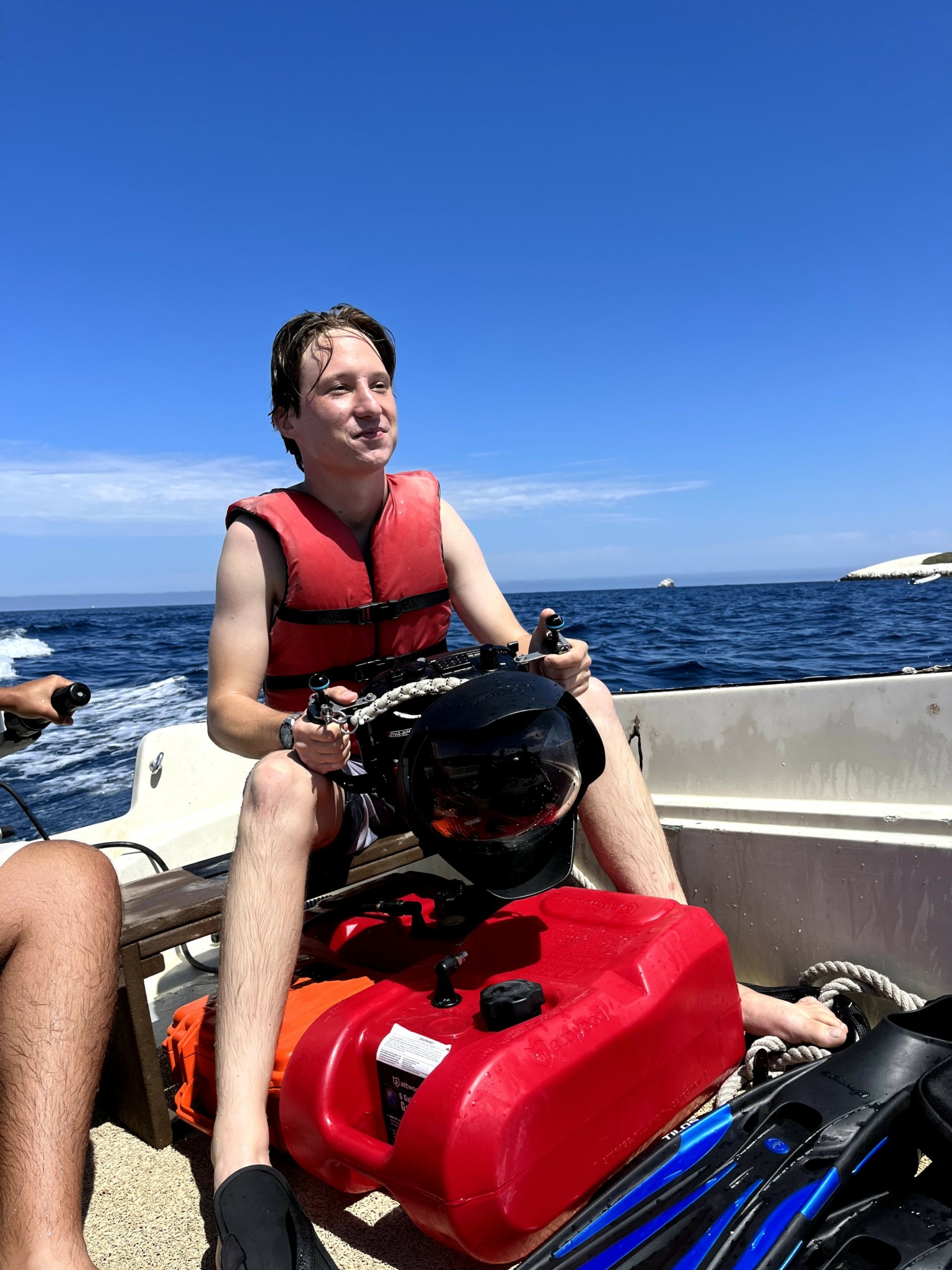
As always, we appreciate you sharing your insights and we’ve got a few more questions for you, but before we get to all of that can you take a minute to introduce yourself and give our readers some of your back background and context?
For as long as I’ve been a filmmaker I’ve branded myself as a Cinematographer above all else. Before making films I took photographs and before that I liked to draw. The image itself has always been at the core of what I love about making movies. It’s hard to say why, exactly. In addition to a love of art and aesthetics I have a strong technical and scientific curiosity and I think cinematography scratches both sides of my brain in a way that few other disciplines can, even within filmmaking itself. When applying to college I considered other routes, particular ones with better pay, schedule consistency, and parental satisfaction metrics like mechanical engineering, computer science, and environmental science. I eventually decided that filmmaking was what suited me strengths and weaknesses best and, frankly, I was pretty awful at all the other stuff anyway. Cinematography was what I enjoyed most, was best at, and could give my all to. That felt like as good a reason as any to commit 4 years of my life to a formal education.
I now find myself about to graduate from film school, more sure than ever that this is what I love most. I’m sure that at some point during my (hopefully) long life my interests will shift in one direction or another but for the time being I can’t possibly imagine doing anything else. During the last 4 years I’ve shot upwards of 20 short films, 1 feature film, 4 documentaries, 8 music videos, a small handful of spec commercials, and more event videos than I can count, all as the DP and the majority of which were ironically unaffiliated with the school. I’d be lying if I said I wasn’t tired but I’m also tremendously grateful and ready to continue at full steam ahead after a short post-grad nap.
The more filmmakers I work with the more I realize how relatively unimportant technical ability is. Almost anyone holding a camera can produce a pretty image if given enough time, especially with technology advancing so quickly. So when I market myself, sure, I’ll send a reel, but I find it important to point out what makes me unique as a collaborator and an artist. I find this difficult as a raging self-critic but I’ve recognized that it’s an important skill to hone.
My first selling point is my general attitude and level headedness. In high school I was diagnosed with General Anxiety Disorder and I’ve spent the better part of the last decade learning to tame it. Filmmaking can quickly become one of the most stressful things you can do; between the 12 hour days, packed schedules, large crews, and expensive equipment I’ve seen many people quickly lose their cool and say things they would later come to regret. In many ways I’m grateful for my journey with anxiety because I now feel, potentially more so than the average person, equipped to deal with high stress environments. I take immense pride in consistently being one of the most focused, calm, and collected members of any crew and like to maintain a steady and consistent pace throughout the day. Combined with a healthy does of kindness you have the ability to really shape the morale and energy on set very quickly. This isn’t a skill you can necessarily portray on a resume but I do my best to convey my calm during interviews or meetings.
On a more hands-on level I’d be remiss not to mention my technical and practical knowledge as another reason to consider me. I’ve worked in television broadcast, journalism, events coverage, theater, documentary, narrative film, and just about any other genre you can imagine and I take special care to be intentional about and considerate of the tools that I use. It’s very easy to drown in fancy, complicated equipment if you aren’t intentional and just about every project requires, if only slightly, a different set of tools. This doesn’t just mean knowing the tools of the trade, but adapting the tools of other trades to fit your specific needs. I like to use theatrical lighting techniques for narrative shorts, events coverage tools for run-and-gun documentaries, and sailing knots for set lighting. While I try not to let the technology get in the way of storytelling I think having a meaningful understanding of and appreciation for the tools we use opens up a whole world of opportunities and creative solutions to common problems.
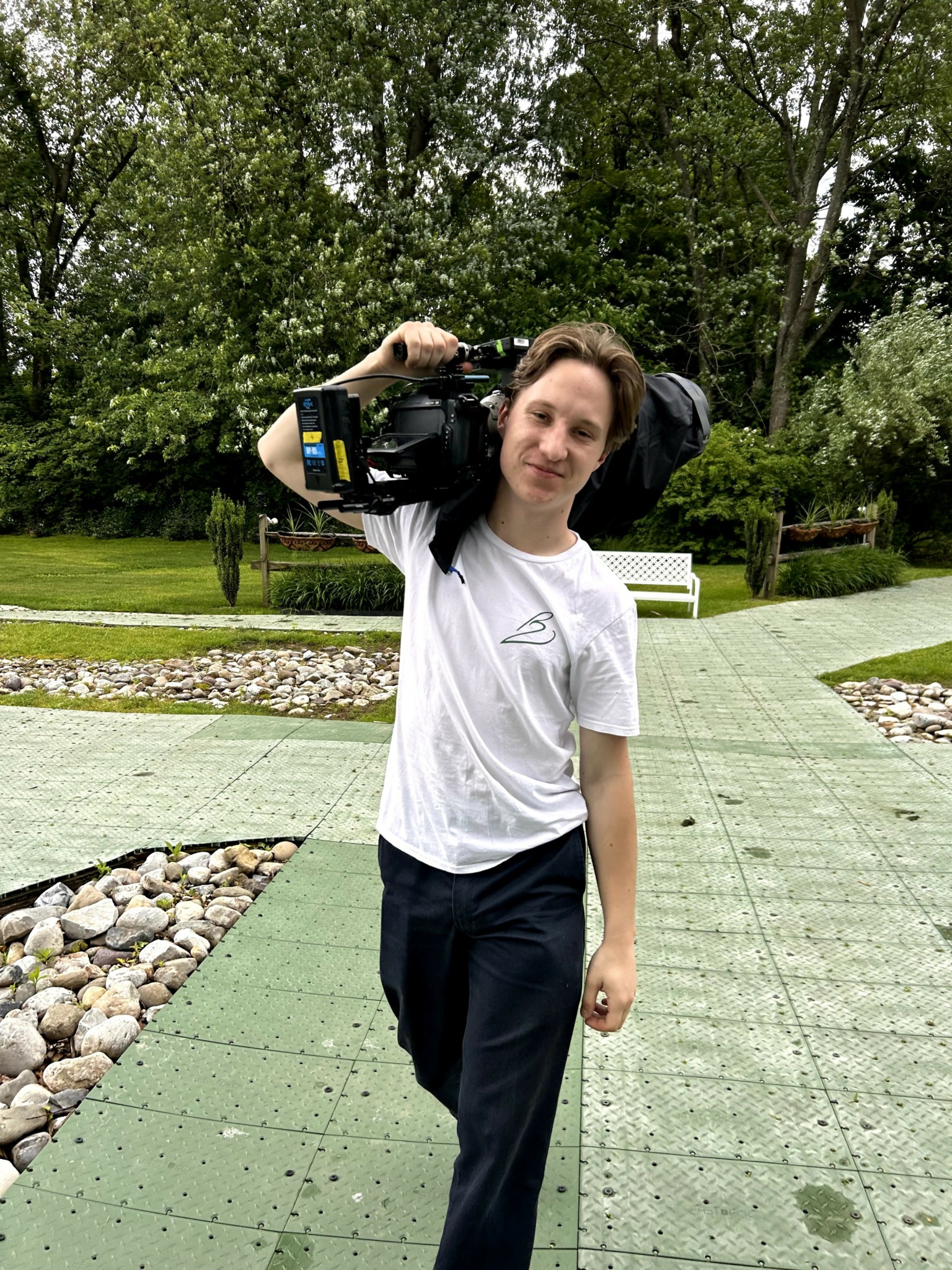
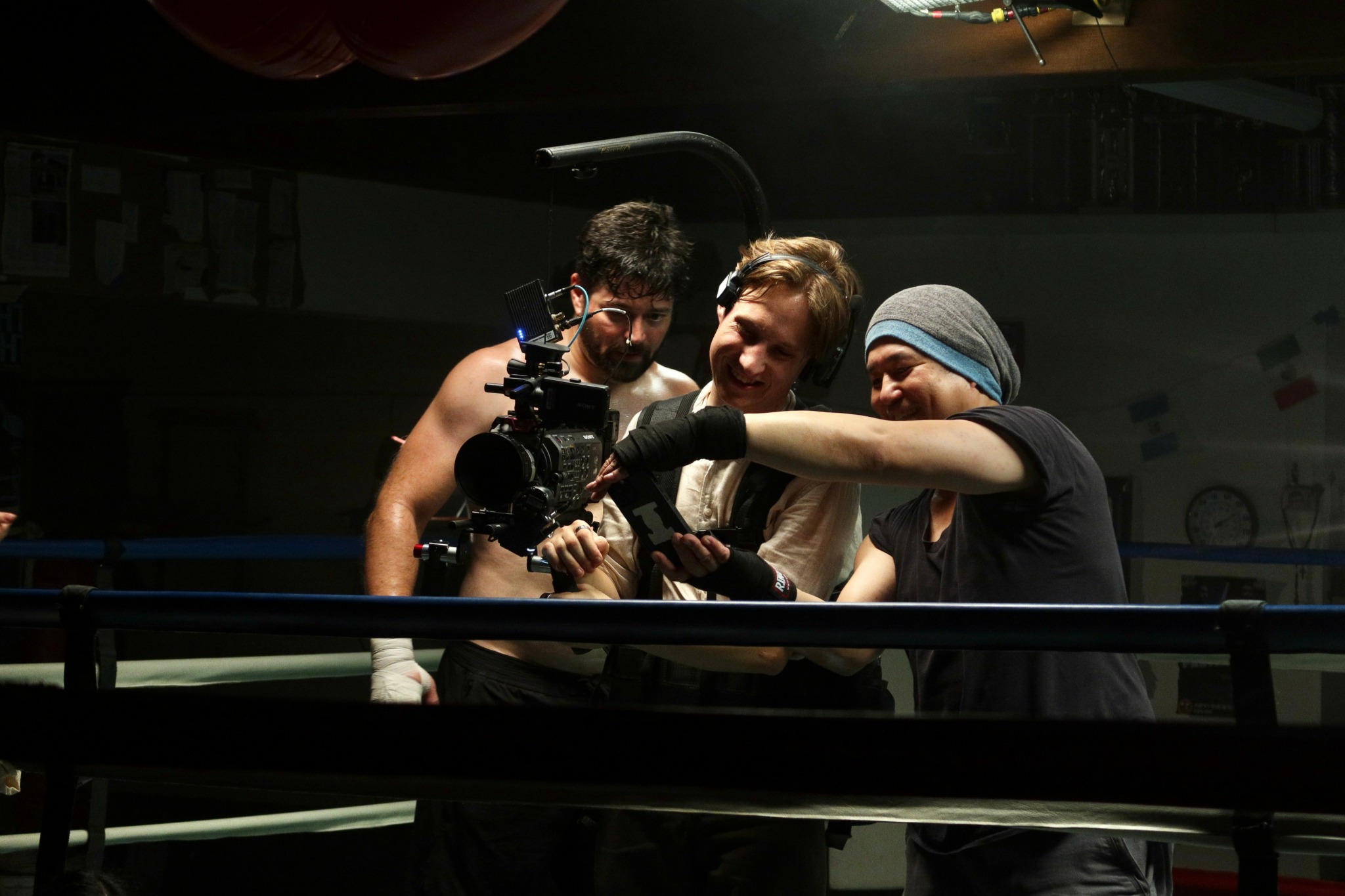
What do you think helped you build your reputation within your market?
I think one of the most difficult parts of filmmaking is reputation. I don’t mean likeability (although that’s a whole nother important topic) but rather what you’re known for. I’m in a somewhat unique situation among my peers where I do know exactly what I want to do, have for some time so please take whatever I say with a grain of salt. So much of your filmmaking network is built off of brief interactions with people who might barely remember your first name. The more succinct your self-proclaimed job title is the more memorable it is. I’m incredibly lucky that, since coming to film school, I’ve taken no issue with labeling myself as a DP and nothing else. This means I’ve been fortunate enough to get on tons of small projects, often through people that don’t really know me but know of me. If I were to say “Hey I’m Liam, I’m a writer/director who occasionally DP’s but also I’ve recently gotten into editing.” I doubt anyone would bring me on as any of those things. I’ve discussed this with friends and it understandably comes off as cynical but I think it’s something worth keeping in mind. Be confident and loud. People in film want to hire people that are excited about their role and want to grow within it. A good example of this might be those in my program who want to direct. When you ask most of them what they do in film they say it so quietly and under their breath as to not sound ostentatious. I understand the inclination but I think it’s ultimately self-sabotaging. The last thing I’ll say on the matter is that people remember the good projects and quickly forget the bad ones (in terms of aesthetic quality, less so their experience working with you). Don’t be afraid to make something bad just to gain experience. Most of the directors in my cohort haven’t directed anything that wasn’t an assigned project, mostly (I think) because they’re waiting for the right project or feel like they need a certain amount of money. I spent my first 2 years shooting some of the worst projects you could imagine (hence they arent in my portfolio) but people don’t talk about those. They talk about me as a DP and then whatever the most recent project I shot was. This applies in film school, especially, as people tend to be more forgiving of “bad” projects since we’re all learning. All that I’ve said accounts for 50% of where I am now, the other 50% is a combination of luck and being in the the right place at the right time. I’m also 20-something so what do I know.
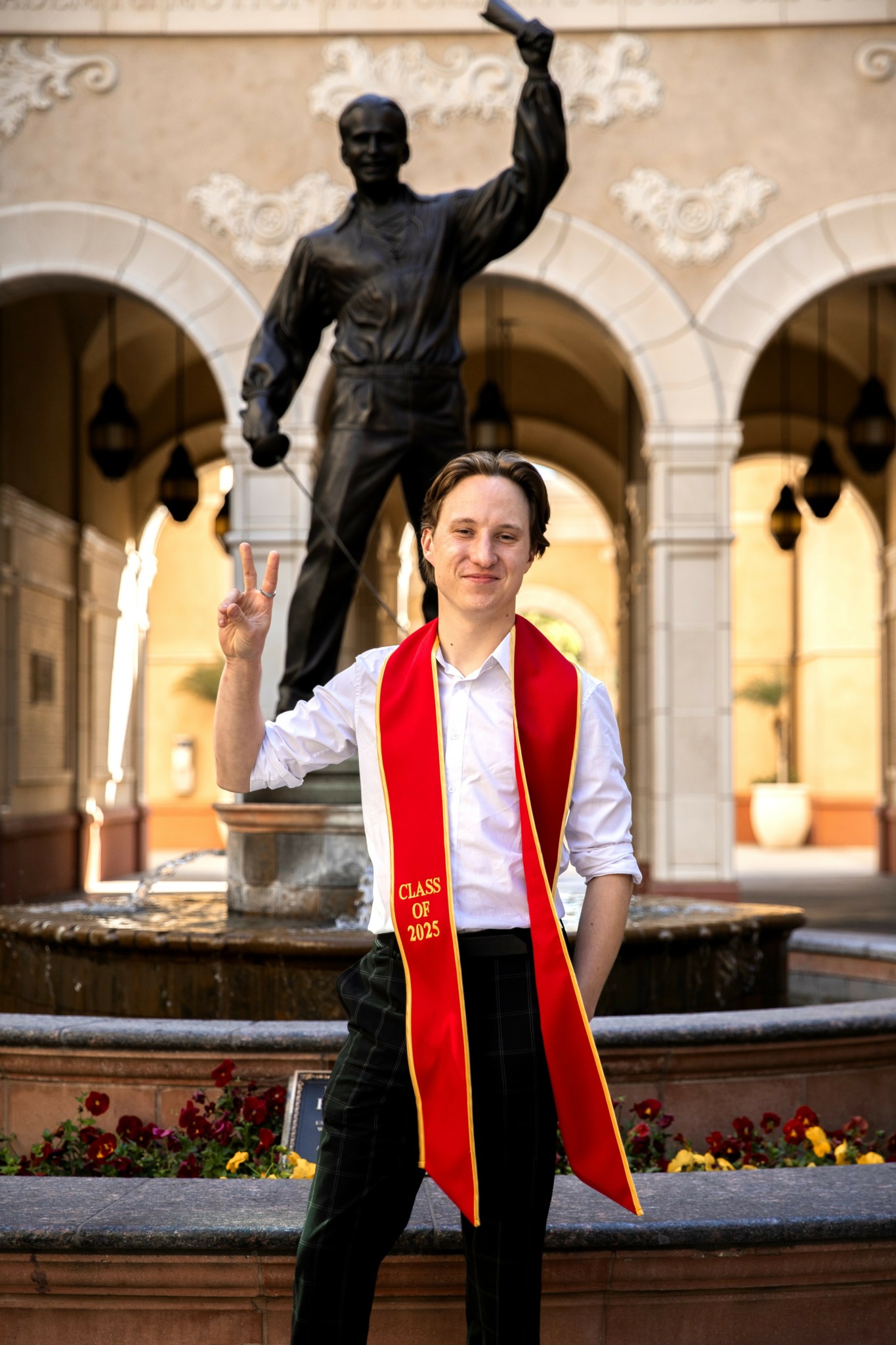
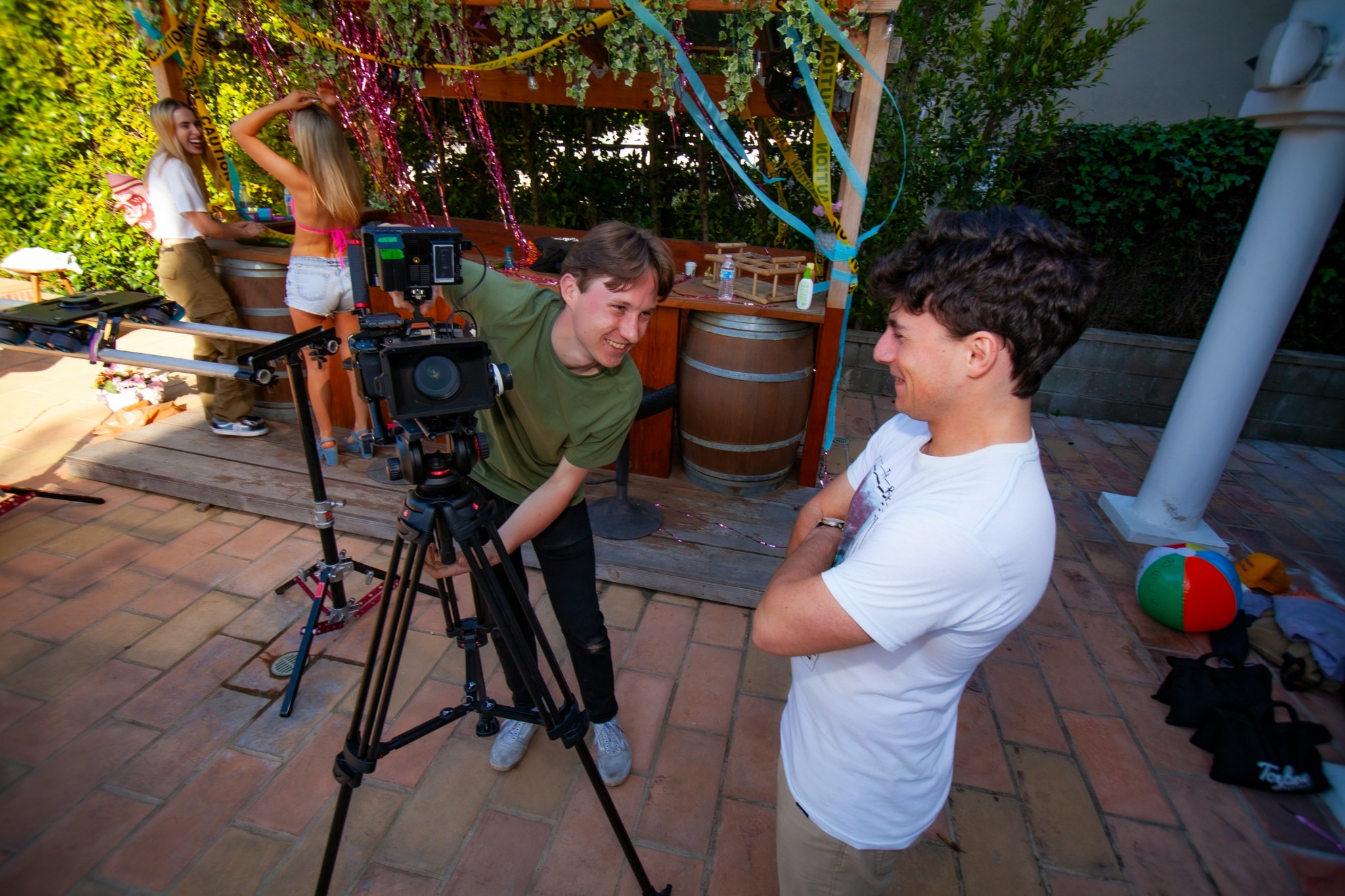
Do you have any insights you can share related to maintaining high team morale?
I covered this briefly but I think, as a head of department, part of your responsibility is to be vigilant about the kind of energy you’re projecting onto the crew. The worst thing you can do when you’re running behind or find yourself in a bind is get visibly flustered or upset. not only do calmer heads prevail but people (myself included) are infinitely more receptive to and likely to be led by calmer heads. I had a professor who would always say “Stop running, if you think you’re running behind now wait until you fall and injure yourself, then you’ll really fall behind.” and I think that same logic applies. Limiting stress causes people to have a better time and that’s exactly when the best work happens. The only time I even consider raising my voice is when safety is on the line. Whenever I interview for a project I take special care to note is the director and/or producer has a nervous demeanor. If they’re nervous now, wait until they get to set… To be clear i’m not anti-nerves, I just think that as professionals we owe it to those around us to maintain our composure. I’m not perfect, but it’s something I prioritize. Oh, I also crack a lot of jokes.
Contact Info:
- Website: https://www.liamhoole.com
- Instagram: https://www.instagram.com/liam_hoole_/
